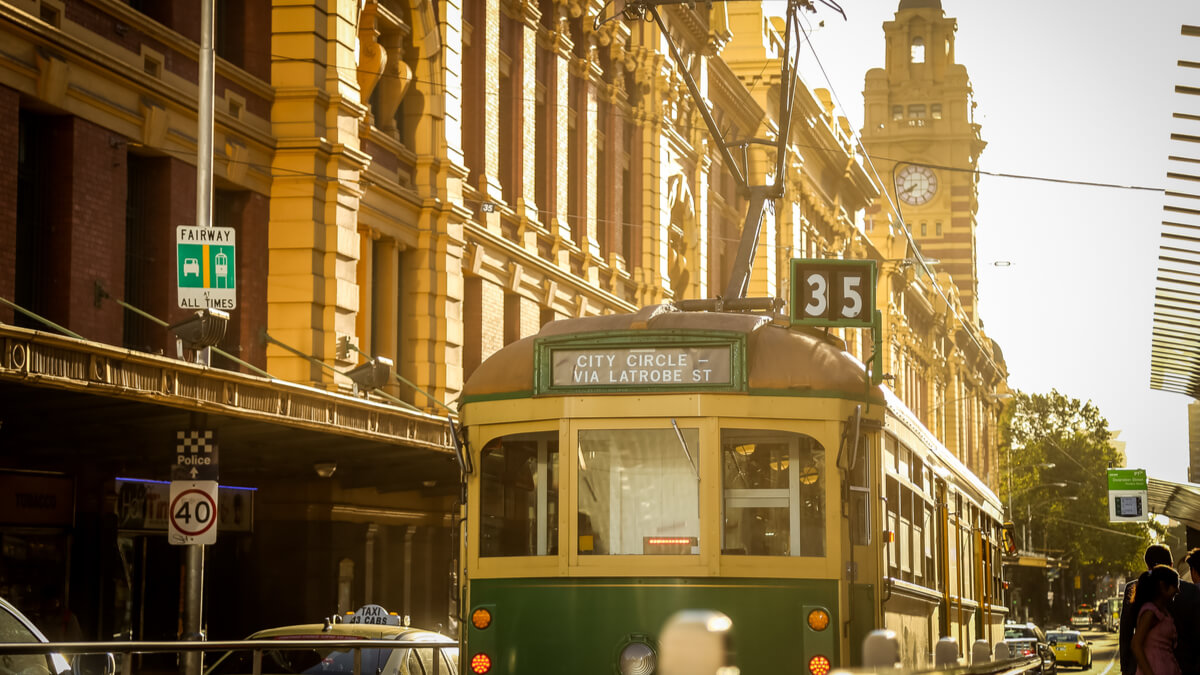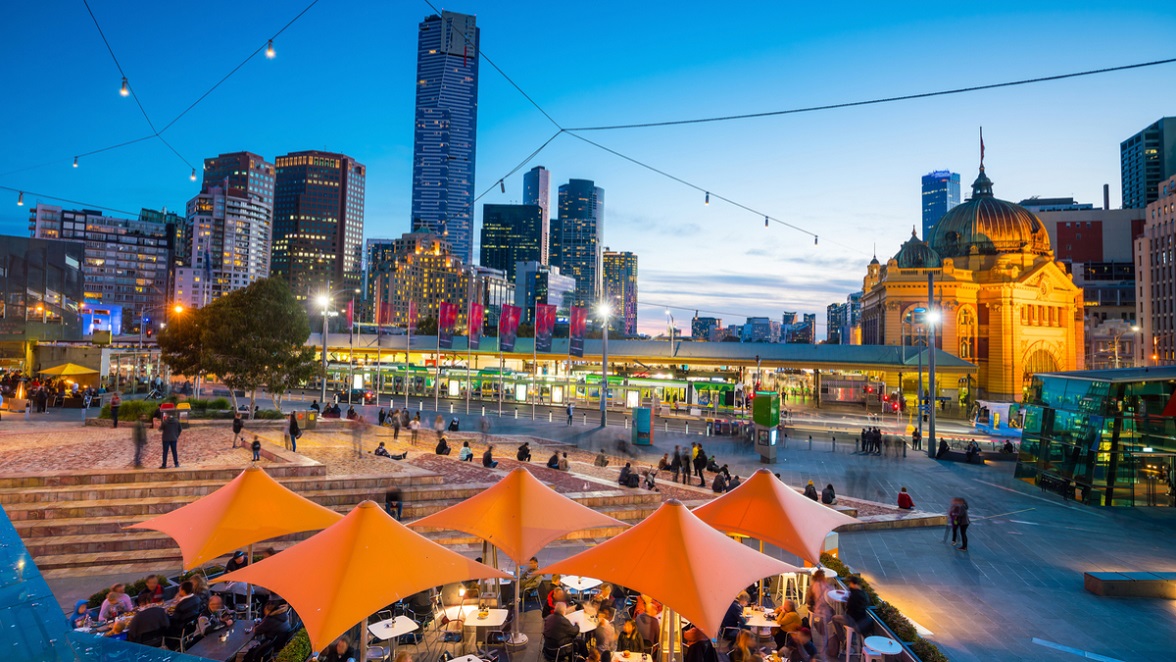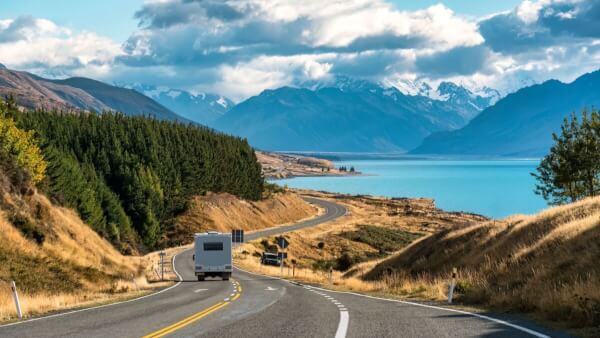UK mortgages and home loans for foreigners: US guide
Find out what you need to know about getting a mortgage in the UK when buying property abroad as an American.

There are plenty of great things about the US, but there’s a whole other world out there, too. Right across the globe, there are thrilling sights and stunning landscapes, amazing cities and incredible food. It’s not surprising that many Americans are tempted by the thought of heading to Australia to work for a while.
Setting yourself up for a new life on the other side of the world takes planning. While you’re doing that, you’ll come to appreciate the need to make yourself desirable to Australian employers. The trick is in knowing where to go and what to do.
That’s where this article comes in. You’ll find practical advice to help smooth your path to an Australian job, as well as some tips you may not have thought of. After reading this article, you’ll have taken the first steps toward a fulfilling employment experience in Australia.
Before you get started, a word.
Banks often charge hefty fees for foreign and multi-currency accounts. And if you’ve already tried managing multiple accounts in multiple countries, you know it’s rarely simple.
Wise could help. With Wise, it’s free to open a borderless multi-currency account with no monthly fees. There, you can manage and send dozens of different currencies all from the same account. All around the world. (Likely, for a lot cheaper than your bank.)
Give it a try. Check out Wise today.
Now, back to what you came here to read
Whatever the type of work you want to do, one thing you’ll always need to know is where to go. The best way to find an Australian job varies, depending on what you’re doing and where you want to base yourself. What you can do, though, is to give yourself the best chance — and taking a little time to think before you start can really pay off later on.
Not all skills and roles are in equal demand in Australia. The country is always looking for some types of workers, but in other sectors the market may already be saturated. It’s worth reading feedback from people who’ve been there ro do similar jobs to yours. They can be a great source of tips to help you find a job, as well as with the adjustment to working in a new country. Make sure you check their date stamps: some things can change a lot in a decade.
We’ll talk a bit more about work visas in a minute, but Australia is a country where you can’t just breeze in and set yourself up with a job. You’ll often see job ads where employers are only interested in people who already have the right to work in Australia. It’s occasionally possible to be sponsored by an employer, but that’s only likely to happen if you have very specific skills to fit a role that can’t be filled by Australians.
You need to sell yourself to prospective employers and your resume is the best place to do that. Don’t overplay the fact that you’re from overseas — the employer wants someone to do a great job, not someone to help plan their staff vacations. Something to watch out for in Australia is that the American term “resume” and the British term “CV” are both used. They’re pretty interchangeable, but in general a CV is longer and more detailed. It’s also the more likely term you’ll hear if you’re going for a public sector role.
| You can create your resume by choosing the best resume format from our free resume templates and customize it with your history. |
|---|
In Australia, many employers recruit through online employment marketplaces. The largest is SEEK, but there are plenty of others, and it’s a good idea to look at several. If you’re in an unusual or niche role, check to see whether there’s a portal that specializes in the type of jobs you’ll be applying for. Take advantage of any special features these marketplaces may offer, such as alerts and example application forms.
As you’d expect, as an American you can’t work in Australia as easily as you could back home. Like most countries, Australia has a number of rules and requirements for foreign workers, and they’re enforced pretty strictly. This isn’t a country where you can turn up at the airport with only a vague idea about what you want to do.
To work in Australia, you’ll need a visa — and there are a lot of different work visas, so you’ll need to be sure you pick the right one. The place to find these is the Australian Department of Home Affairs’ Working in Australia page.¹ Here, you’ll be able to see a list of the kinds of jobs that you can get a work visa for. Don’t expect this to cover everything, as Australians generally get priority. If all the roles can be filled by Australians, then Americans are likely to be turned down.
Australia has a pretty complex setup when it comes to visas, with the Australian government’s list containing over 20 different types for work visas alone. Spend some time checking the terms and conditions of each one before you start applying for jobs, to be sure you’ll qualify. You’ll occasionally hear people refer to visa types by their subclass number, saying things like “I’m here on a 462”, so it’s a good idea to learn the codes that apply to the visa you’re going for. Some of the visa types available are:²
If you’re aged between 18 and 30, there’s an extra option open to you: the Work and Holiday visa, listed as subclass 462. Be careful not to confuse this with the Working Holiday visa (subclass 417), as that’s not open to Americans.³ The Work and Holiday visa, which costs AUD 450 and lasts for up to 12 months, will let you fund your trip to Australia by working.⁴ If you’ve had one of these visas before, you can apply for a second one, which will cost the same and have similar conditions.
Like most countries, Australia requires people who want to work there to apply for an appropriate visa. There’s no getting around this, so it’s best to be prepared. Make sure you leave plenty of time, as it can often take around 8–10 weeks for visa applications to be processed.⁵ ⁶ ⁷
You’ll need a valid, current US passport with at least six months validity. You won’t be going to Australia without one! If you haven’t held a passport before, or need to renew an existing one, make sure you leave plenty of time for your application to be processed. Australian immigration is pretty strict, and any irregularities may well see you denied entry to the country entirely.
Beyond that, the requirements differ depending on exactly what type of visa you’re after. For example, if you’re traveling under the Skilled Migration program, you’ll have to undergo a medical examination and provide proof of this.⁸ Since the requirements can be quite specific, double-check you’ve collected the documentation that applies to the exact visa you want to apply for.
You’re also likely to need:⁹
As an American citizen, it’s unlikely you’ll have to provide proof of your ability to work in English, but be prepared just in case.
The Australian government charges fees for nearly all types of work visas. Although there are a few exceptions, it’s best to assume that you’ll need to pay. Since prices vary from time to time, it’s a good idea to check the government’s website for current details. But when we looked, visas could cost anywhere between AUD 285 and AUD 2,455, assuming you’re applying while you’re still in the US. In general, Temporary Skill Shortage visas are more expensive than short-stay Temporary Work or Temporary Activity ones.¹⁰

It’s not all about visas. Working in Australia means living there, too, and it’s best to be prepared. Some things you’ll need to know are:
You might be surprised at how much small talk goes on before and after meetings, even important ones. While you’re actually getting down to business, everyone will be much like you’d expect back home — but don’t be too laser-focused either side. Australians are quite laid-back, as long as you get the job done. You’ll definitely lose marks if you’re late to a meeting, or waste someone’s time with irrelevant details. Keep it short and to the point, but be prepared to have a drink with your co-workers later.
Australian work contracts average around 20 days’ vacation a year. That may well be more than you’re used to in the US, although it’s less than in some other countries like the UK. This doesn’t mean that you can ease off the gas the rest of the time, of course — you’ll still be expected to put in the effort. Australians tend to have a straightforward approach: if you do the work, then nobody will begrudge you your vacations, or “holidays” as they’re called here.
This varies according to where you are and what you’re doing, but don’t necessarily expect just to work nine to five each day. Australian work weeks can rank among the longest in the world, and you’ll be expected to live up to that work ethic. Putting in some “hard yakka” is respected, and getting a reputation as a hard worker will definitely help you if you want to progress.
Hierarchies are pretty flat in many industries, so don’t make the mistake of treating your subordinates like servants. On the flipside, you don’t need to treat your boss like a god, either. Giving people “a fair go” is another characteristic that’s important to Aussies, and it’s not one you can get away without.
Something you’ll definitely need to know about is getting a bank account. There are certain documents you need, and particular things you need to do, if you want to avoid unnecessary delays. Take a look at our simple guide to opening a bank account in Australia to find out more about what to do and where to go.
It’s not just about saving yourself time, though – it’s also about saving yourself money. It’s usually pretty expensive to keep changing money from US dollars to yen and back again. That’s because of international transfer fees, which can add up fast if you need multiple transfers. The markup that’s generally charged on exchange rates can be pretty painful. Happily, there’s a way around that. With a Wise borderless account, you’ll pay only one low, clear, upfront fee – and you’ll get access to the markup-free mid-market exchange rate. You’ll be able to budget better and save cash too, so what’s not to like? In fact, using Wise could be up to 8x cheaper than a bank.
Since a Wise borderless account means you can receive funds in yen without the need for a Japanese bank account, it’s a great way to get started in your new home. You’ll be able to get going faster and that means having a quicker way into the full Japanese experience.
There’s no getting around it: Australia can be an expensive place to live. It’s not all bad news, though, as there’s plenty of accommodation around at affordable rates. Maybe you’ll have to pass on that luxury penthouse, but you can get a decent apartment in many places for around AUD 300 per week.¹¹ You’re more likely to feel the pinch in other areas; for example, gasoline — which is called “petrol” in Australia, like in the UK — costs around AUD 1.40 per liter. You may also find your internet costs more than you’re used to, but don’t skimp on that — you won’t find many jobs without it these days.
You’ll also need to think about relocation costs. You’re traveling to the other side of the world, so shipping all the stuff you’ll need out isn’t going to come cheap. In fact, moving your home from somewhere like New York City to Sydney can set you back as much as USD 4,000.¹² Bear these costs in mind when you’re working out finances for your Australian adventure.

Australia is a big and varied country, so there’s plenty of choice as to where to go. Some of the most popular places to work are:
Wherever you decide to base yourself, setting off for a career in Australia can be a really exciting time and give your resume some eye-catching extra details. Just don’t forget the essentials like working out your finances. A service like Wise may be able to help you budget more effectively and make your time Down Under go that bit more smoothly.
Sources:
*Please see terms of use and product availability for your region or visit Wise fees and pricing for the most up to date pricing and fee information.
This publication is provided for general information purposes and does not constitute legal, tax or other professional advice from Wise Payments Limited or its subsidiaries and its affiliates, and it is not intended as a substitute for obtaining advice from a financial advisor or any other professional.
We make no representations, warranties or guarantees, whether expressed or implied, that the content in the publication is accurate, complete or up to date.

Find out what you need to know about getting a mortgage in the UK when buying property abroad as an American.

Find out what you need to know about getting a mortgage in Australia when buying property abroad as an American.

Thinking about moving to New Zealand? Find out what you need to know about renting in New Zealand in this guide.

Thinking about moving to Thailand? Find out what you need to know about renting in Thailand in this guide.

Thinking about moving to Costa Rica? Find out what you need to know about renting in Costa Rica in this guide.

Thinking about buying a vacation home? Read on for the top 10 best places to buy a vacation home around the world and their relative costs.